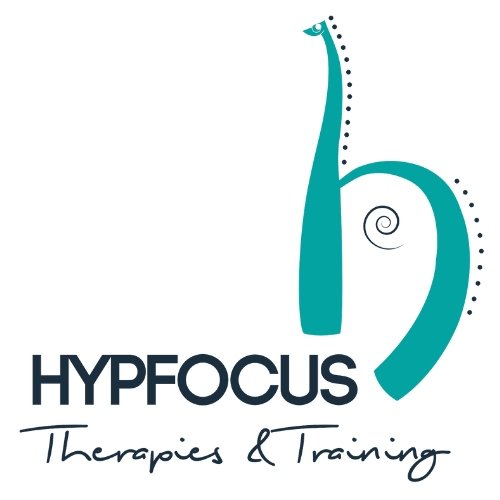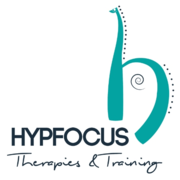The Top 10 Most Common Phobias and How Hypnotherapy Can Help
What is a Phobia?
A phobia is an intense, irrational fear of a specific object, situation, or activity that is typically disproportionate to the actual danger posed. Unlike ordinary fears, which are natural responses to genuine threats, phobias are persistent and can significantly interfere with a person’s life. While fear may cause discomfort, a phobia often leads to avoidance behaviours, panic attacks, and a profound impact on daily functioning.
Phobia vs. Fear
Fear is a natural emotional response to a real or perceived threat. It triggers the body's fight-or-flight response, preparing us to face or avoid danger. For example, feeling fear when standing on the edge of a tall building is a normal reaction.
Phobia, on the other hand, is an exaggerated and often irrational fear of something that poses little or no actual danger. For instance, a person with acrophobia (fear of heights) may experience extreme distress even when standing on a low stool.
Are Phobias Hereditary?
A combination of genetic and environmental factors can influence phobias. Research suggests that individuals with a family history of anxiety disorders or phobias are more likely to develop phobias themselves. However, phobias can also arise from traumatic experiences, learned behaviours, and cultural influences. The exact cause is often a complex interplay between genetic predisposition and life experiences.
The Top 10 Most Common Phobias
Arachnophobia: Fear of Spiders
Symptoms: Panic attacks, rapid heartbeat, sweating, and avoidance of places where spiders might be present.
Description: Arachnophobia is one of the most common phobias worldwide. Even the sight of a spider or an image can trigger intense fear and anxiety.
Ophidiophobia: Fear of Snakes
Symptoms: Nausea, dizziness, trembling, and an overwhelming urge to escape when confronted with a snake.
Description: This phobia often stems from a fear of being bitten or encountering venomous snakes, even in places where snakes are not present.
Acrophobia: Fear of Heights
Symptoms: Vertigo, sweating, heart palpitations, and an overwhelming sense of dread when at a significant height.
Description: Acrophobia can be debilitating, affecting a person's ability to engage in everyday activities like climbing stairs or flying.
Agoraphobia: Fear of Open or Crowded Spaces
Symptoms: Panic attacks, feelings of being trapped, dizziness, and a need to escape to a "safe" place.
Description: People with agoraphobia often avoid leaving their homes or venturing into crowded areas, limiting their social interactions and daily activities.
Cynophobia: Fear of Dogs
Symptoms: Shortness of breath, trembling, and a strong desire to avoid dogs, even if they are friendly or well-behaved.
Description: This phobia may develop from a traumatic experience with a dog or from observing someone else's fear of dogs.
Astraphobia: Fear of Thunder and Lightning
Symptoms: Intense anxiety during storms, hiding, trembling, and seeking constant reassurance.
Description: Astraphobia can cause individuals to become extremely distressed during thunderstorms, leading to avoidance behaviors.
Trypanophobia: Fear of Injections or Needles
Symptoms: Fainting, dizziness, rapid heartbeat, and intense anxiety at the thought or sight of needles.
Description: This phobia can prevent individuals from seeking necessary medical care, such as vaccinations or blood tests.
Social Phobia (Social Anxiety Disorder): Fear of Social Situations
Symptoms: Sweating, trembling, nausea, and an intense fear of being judged or embarrassed in social situations.
Description: Social phobia can lead to avoidance of social interactions, affecting relationships, work, and overall quality of life.
Aerophobia: Fear of Flying
Symptoms: Panic attacks, sweating, nausea, and avoidance of air travel.
Description: Aerophobia can make it difficult for individuals to travel, impacting their personal and professional lives.
Claustrophobia: Fear of Enclosed Spaces
Symptoms: Panic attacks, sweating, hyperventilation, and a strong desire to escape confined spaces like elevators or small rooms.
Description: Claustrophobia can make it challenging for individuals to use public transportation, elevators, or participate in activities that involve confined spaces.
How Hypnotherapy Can Help Resolve Phobias
Hypnotherapy is a powerful tool for addressing and resolving the underlying causes of phobias. Unlike traditional therapies that often focus on managing symptoms, hypnotherapy works by accessing the subconscious mind, where the root of the phobia resides. Here’s how hypnotherapy can help:
Identifying the Root Cause: Hypnotherapy can help uncover the original event or trauma that triggered the phobia. Often, phobias are linked to past experiences that the conscious mind may not fully remember or understand.
Reframing Negative Associations: Once the root cause is identified, a hypnotherapist can work with the individual to reframe the negative associations tied to the phobia. This process helps to desensitise the individual to the feared object or situation.
Relaxation and Visualisation Techniques: Hypnotherapy often includes relaxation techniques that help reduce anxiety and panic. Visualisation exercises allow individuals to imagine themselves confronting their phobia in a safe, controlled environment, gradually reducing their fear response.
Building Confidence: Hypnotherapy can also boost self-esteem and confidence, empowering individuals to face their fears and regain control over their lives.
Long-lasting Results: Unlike some treatments that provide temporary relief, hypnotherapy aims to create lasting change by addressing the subconscious patterns that maintain the phobia.
Conclusion
Phobias can be debilitating, but they don’t have to control your life. Understanding the nature of phobias, recognising their symptoms, and exploring effective treatments like hypnotherapy can lead to significant improvements in quality of life. If you or someone you know is struggling with a phobia, consider consulting a qualified hypnotherapist to explore the possibilities of overcoming this challenge.
Georgina Mitchell at Hypfocus Therapies is an experienced, empathetic practitioner trained in hypnotherapy and other modalities, offering tailored treatments to help you overcome your phobias and regain control of your life.

